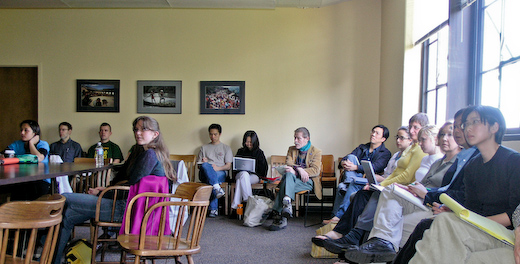In January of this year, the Japanese ruling party passed a bill altering the meaning and intent of a key education law. Over its 60-year history, the Fundamental Law of Education (FLE) served as a final guarantor of educational rights and a bulwark against pressures for Japan to remilitarize. The new law requires schools to "foster patriotic attitudes" and parents to accept more responsibility for their children's successful development. Although many critics view these changes as a return to the heavy-handed interventionist state of prewar times, Arai argues that they represent the shifting of responsibility from the government to the individual. Arai suggests that this new disciplinary structure is suited to the pressures of economic globalization. In this talk, Arai tracks the inception of these changes from the recessionary 1900s to the present demand for mobility, liquidity, and internalized sacrifice in an era when national futures no longer guarantee personal ones.

Andrea Arai is a Visiting Scholar in the Department of Anthropology at the University of Washington. She is completing a book on the effects of the economic downturn of the 1990s in Japan and how these effects are reshaping representations of Japan and its youth. She recently published an essay entitled "The Wild Child of 1990s Japan" in the book Japan After Japan: Social and Cultural Life from the Recessionary 1990s to the Present (2006).
e-Flyer (PDF)


Andrea Arai is a Visiting Scholar in the Department of Anthropology at the University of Washington. She is completing a book on the effects of the economic downturn of the 1990s in Japan and how these effects are reshaping representations of Japan and its youth. She recently published an essay entitled "The Wild Child of 1990s Japan" in the book Japan After Japan: Social and Cultural Life from the Recessionary 1990s to the Present (2006).
e-Flyer (PDF)

Leave a comment